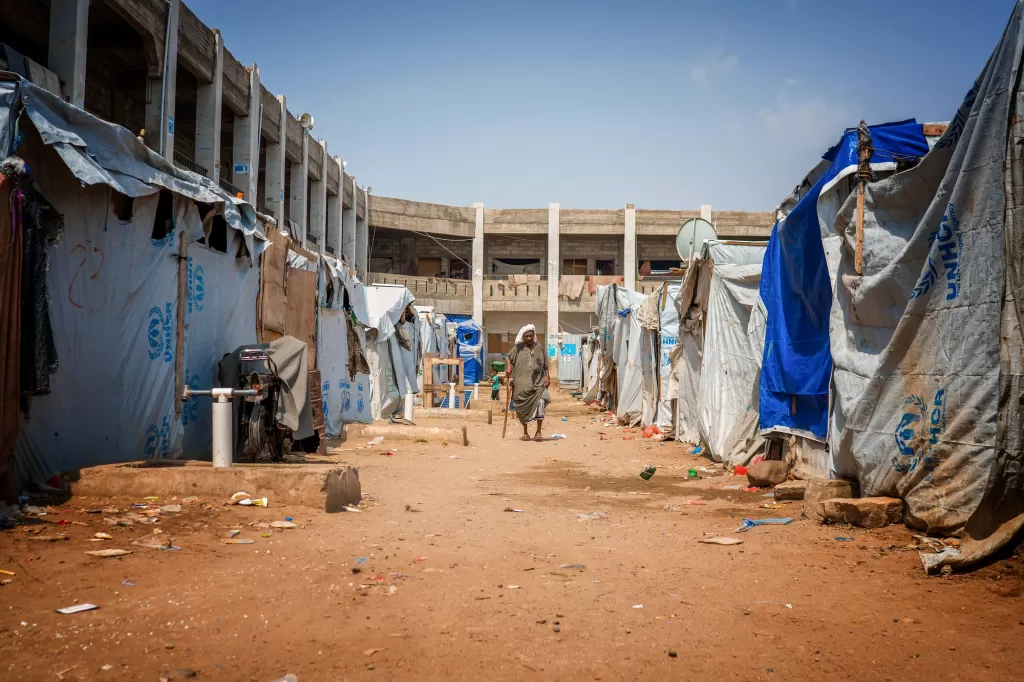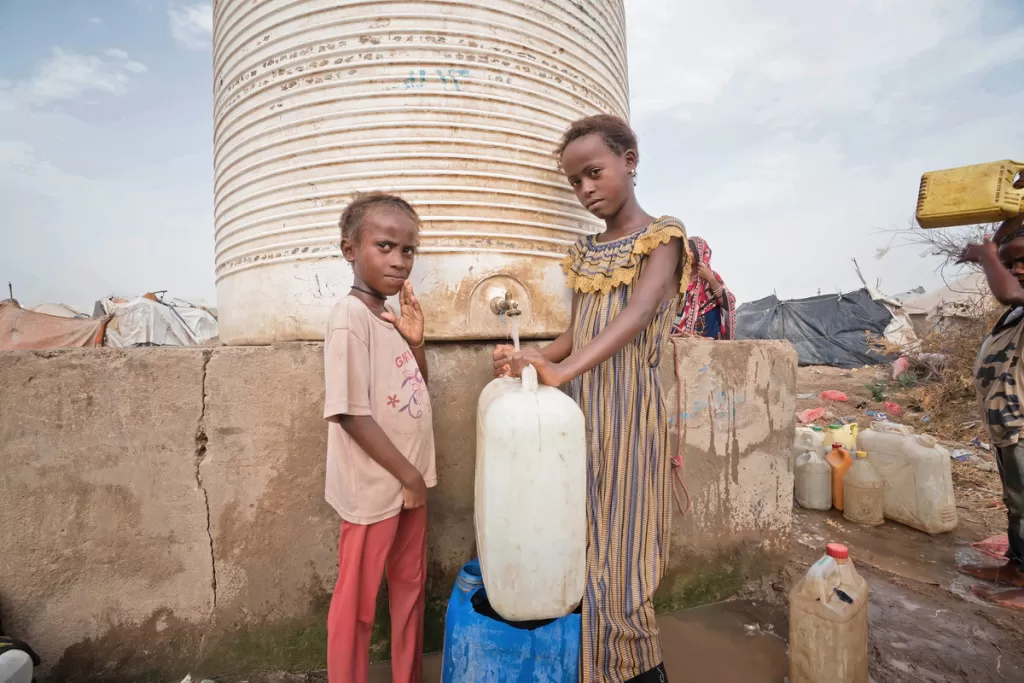
Yemen on the brink: ‘We must prevent a catastrophe from happening’
Aid workers say the situation in the world's most fragile state is the worst it has been for the whole of the war.
1 March 2021
Aid workers say the situation in the world's most fragile state is the worst it has been for the whole of the war.

A man walks between makeshift shelters in a displacement camp near Aden, Yemen. Image: Alaa Aldwaley/DEC

Cousins Hadia*, 7, and Gamila*, 11, collect water from a water tank in a camp for displaced people near Aden, Yemen. Image: Alaa Aldwaley/DEC